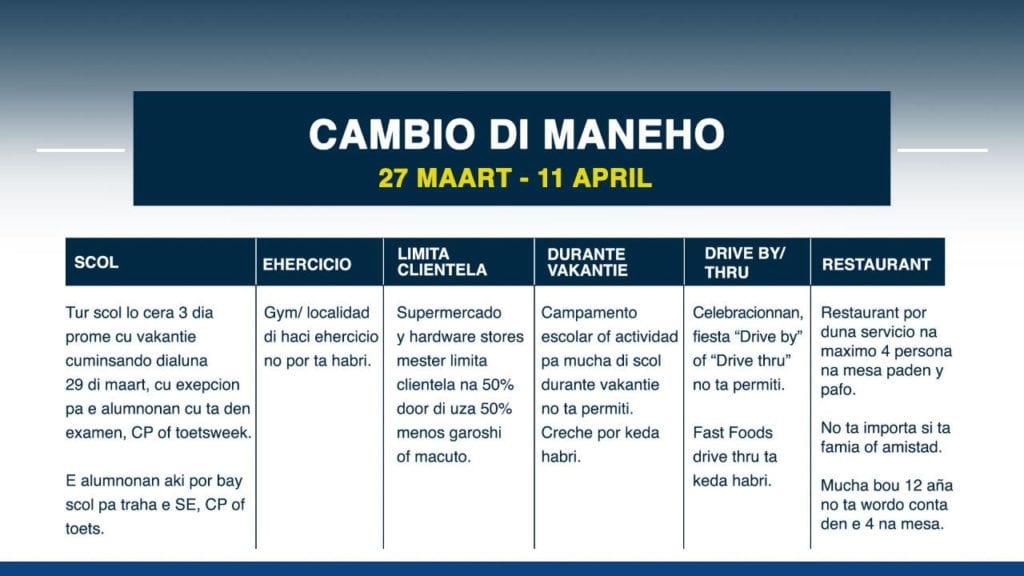The situation concerning COVID-19 on Aruba is alarming. Prime Minister, Evelyn Wever-Croes, despite being quarantined, held a press conference to introduce new measures that will start this Saturday the 27th of March till approximately the 11th of April.
If we look at the recent COVID numbers, there are currently 618 active cases. There are around 64 new cases every day. There are currently 40 people admitted to the hospital, which could rise. Aside from that, there are 13 patients in the Intensive Care. The numbers are bad. Wever-Croes worriedly said, “This is not how we slow down the contagion”.
It is the most vulnerable who are at a risk now and who are jeopardizing the care’s capacity. The situation is alarming, to the point that extreme measures were considered. In the course of a few days, the hospital has increased its capacity to prevent a shelter in place or lockdown from happening. But measures have to be taken. And if these measures do not work, we will have to go further.
The Prime Minister asks all citizens to be careful and prevent contagion in order to not have to enforce a shelter in place.

MEASURES
Considering the current situation, the Crisis Team has taken certain measures, as the police’s High Commissioner Vanessa Tjon-Kock explained.
The stay-at-home curfew, which was previously from 12:00 am till 5:00 am, is now starting from 10:00 pm till 5:00 am. Closing hours have also changed to 9:00 pm. The area restrictions will remain the same, and police will continue their active inspections. The maximum amount of people who are allowed to gather together will remain 2. No permission will be given for camping; therefore, the police will also be monitoring this.
It should not be forgotten that seeing the current situation, petitions for drive-by and drive-thru permissions are being requested. It is not permitted in the foreseeable future.
Consuming alcohol in public spaces is prohibited. Public spaces include the beach, the ocean, and on public terrain. This is prescribed in the ministerial decree and will be monitored.
During Semana Santa (the Holy Week leading up to Easter) there are usually a lot of people on the beach as well as on the streets. Periods of time should not be compared to one another, Wever-Croes says. There are a lot of measures taken. The police’s jobs do not change, if anything they are increasing. In Semana Santa, they will have their hands full. They will be patrolling the streets and parking lots, fining people when necessary.
Businesses whose owners do not follow the rules will be shut down if necessary. They have legal grounds to do so, Tjon-Kock indicated. The public Ministry will decide the amount that is fined.







